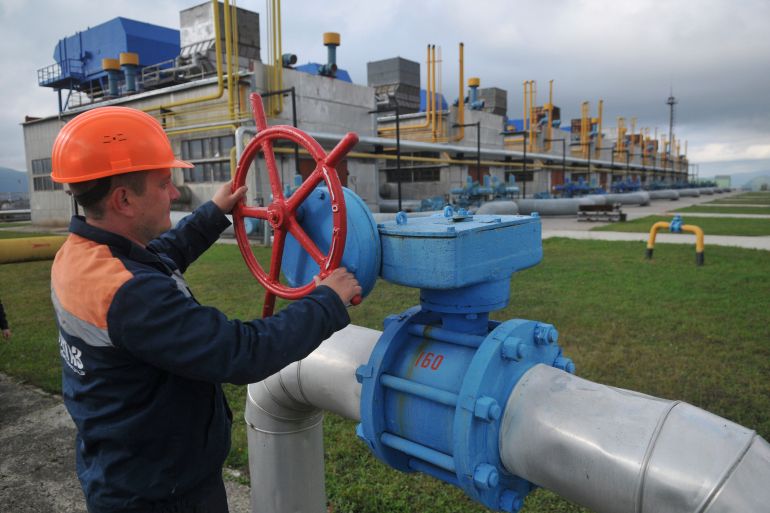Energy prices push eurozone inflation to 5.8 percent
Oil and gas prices soar even higher over fears about the effect on supplies from Russia’s invasion of Ukraine.

Eurozone inflation soared in February to a record high of 5.8 percent, mainly on the back of surging energy prices, the European Union’s official statistics agency Eurostat said on Wednesday.
The acceleration, from 5.1 percent in January, was announced as oil and gas prices rocketed even higher over fears about the effect on supplies from Russia’s full-scale invasion of Ukraine.
Keep reading
list of 3 itemsEmpty shelves, spy hunt: Kyiv residents brace for Russian assault
Russia’s biggest lender Sberbank exits Europe
Brent crude topped $110 a barrel for the first time since 2014 and West Texas Intermediate (WTI) followed suit hours later to hit the highest level since 2013. European natural gas prices similarly hit a record level.
The surge in inflation comes at a difficult time for European leaders as they warn their citizens of the “price to pay” from tough sanctions imposed on Russia, the EU’s leading foreign gas supplier.
Policymakers fear soaring inflation could choke off the EU’s recovery from the coronavirus pandemic.
February figures
Eurostat said energy prices in February jumped 31.7 percent, faster than the 28.8 percent recorded in January. Food prices were up 4.1 percent in February, compared with 3.5 percent the previous month.
Analysts at Capital Economics predicted inflation would hit six percent in the coming months before falling back to about four percent, “most likely” at the end of the year. That is still double the European Central Bank’s target of about two percent.
Capital Economics warned that not only energy prices, but also food prices, could rise further due to the conflict in Ukraine, a major wheat exporter.
The EU and Western allies have imposed sweeping sanctions on Moscow over President Vladimir Putin’s invasion. They have unleashed turmoil on Russia’s economy and forced the Kremlin to impose capital controls.